Abstract
Branch and Vollmer (2004) argue that use of the word behavior as a count noun is ungrammatical and, worse, mischaracterizes and ultimately degrades the concept of the operant. In this paper I argue that use of behavior as a count noun is a reflection of its grammatical status as a hybrid of count and mass noun. I show that such usage is widespread across colloquial, referential, and scientific documents including the writings of major figures in behavior analysis (most notably B. F. Skinner), books describing its applications, and its major journals. Finally, I argue against the assertion that such usage degrades the concept of the operant, at least in any meaningful way, and argue instead that employing eccentric definitions for ordinary words and using arcane terms to describe everyday human behavior risks diminishing the influence of behavior analysis on human affairs.
Keywords: behavior, mass noun, count noun, language, behavioral grammar
Full text
PDF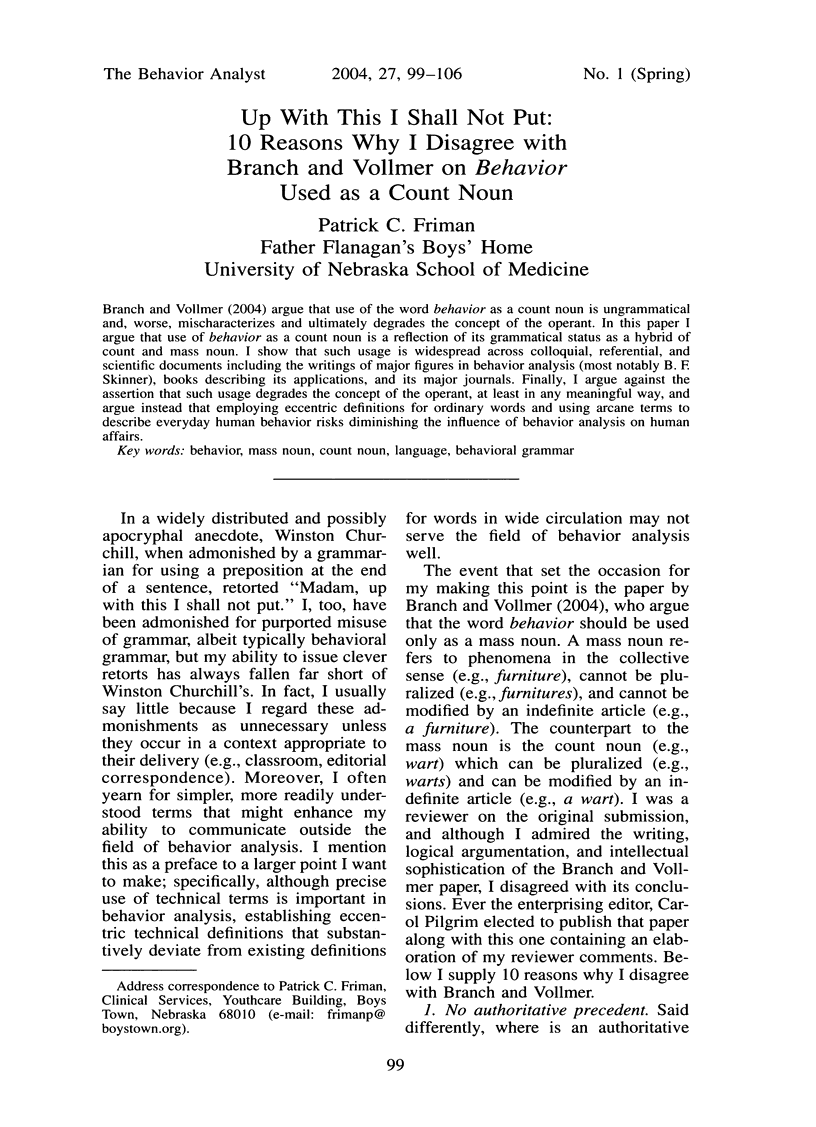
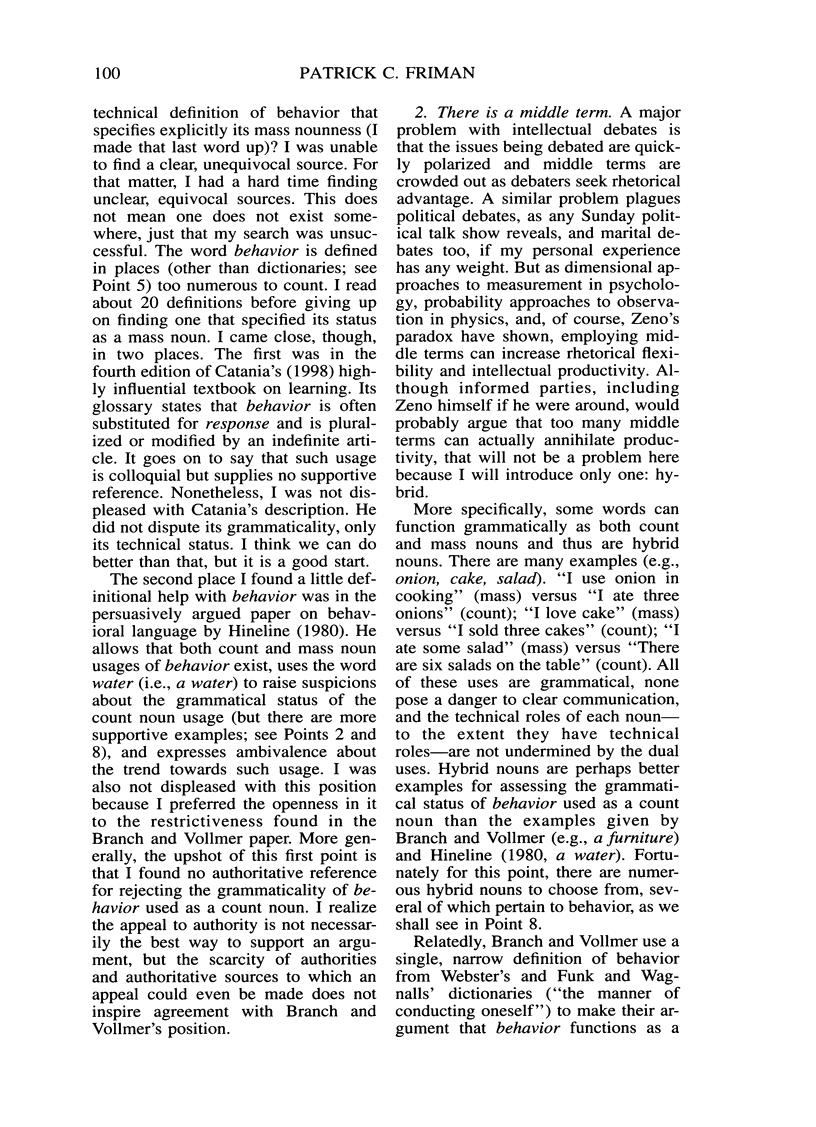
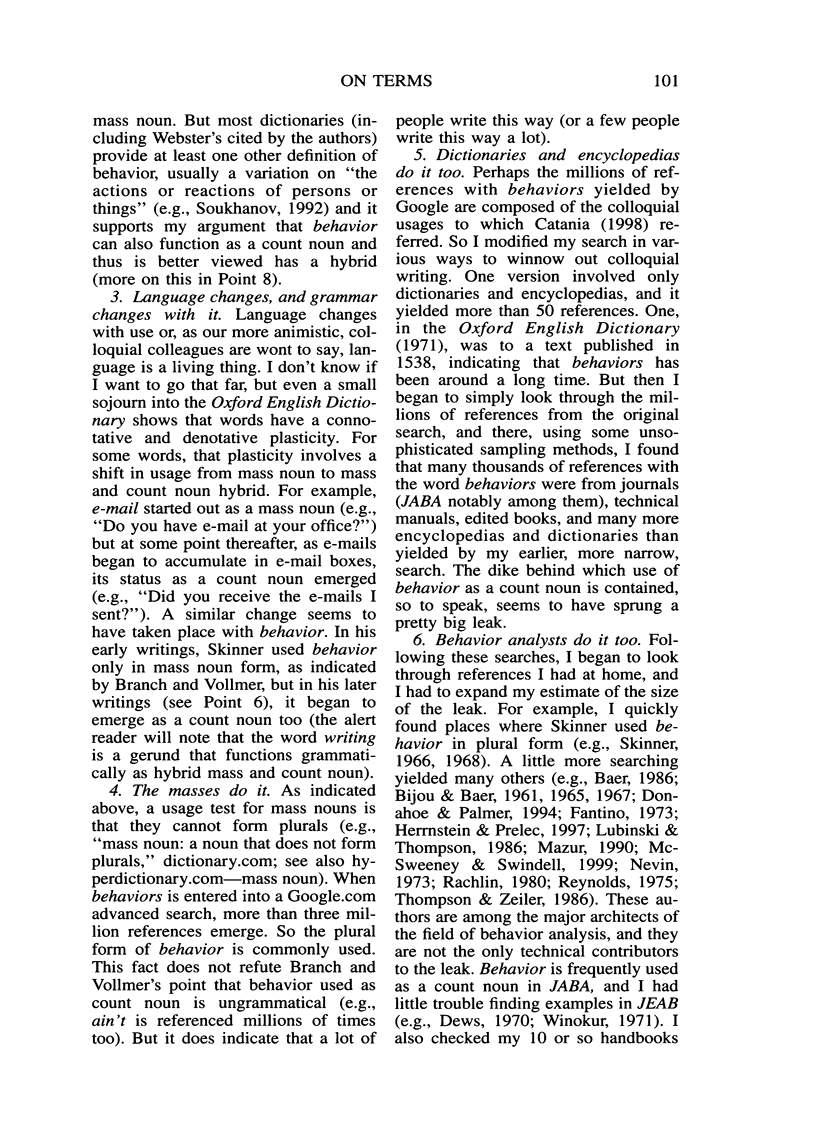
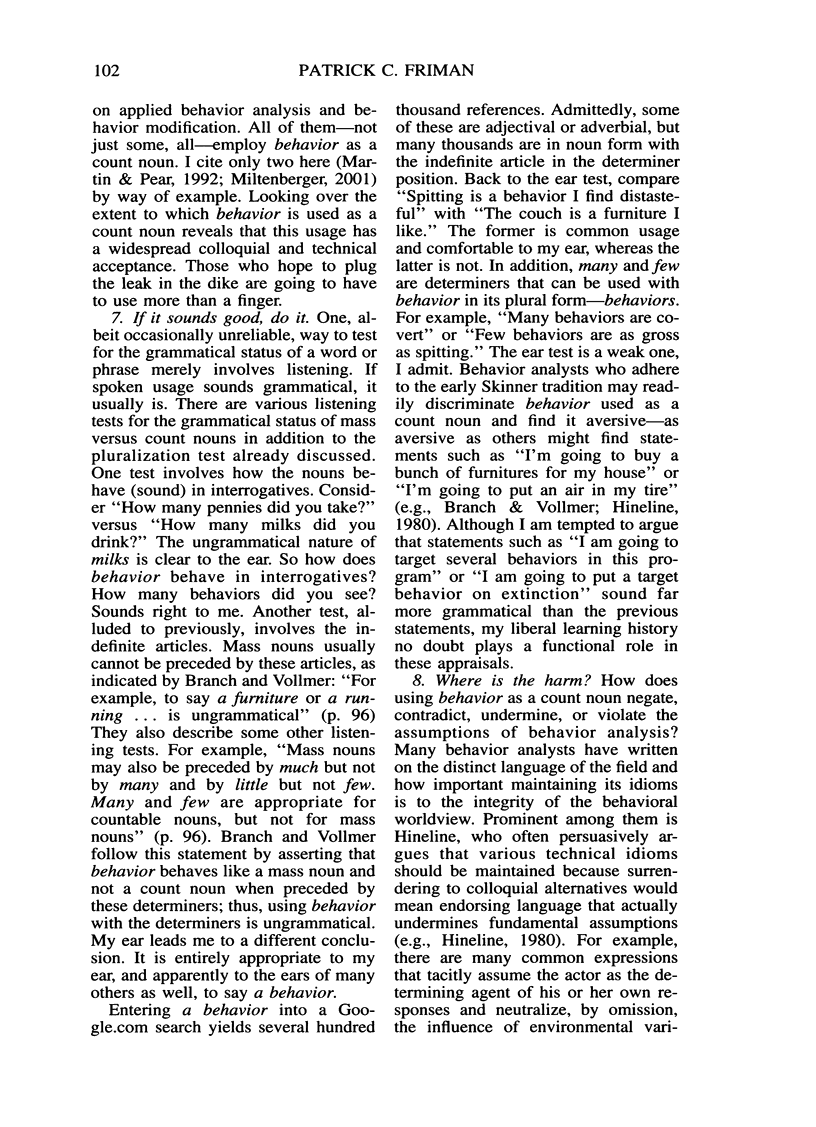
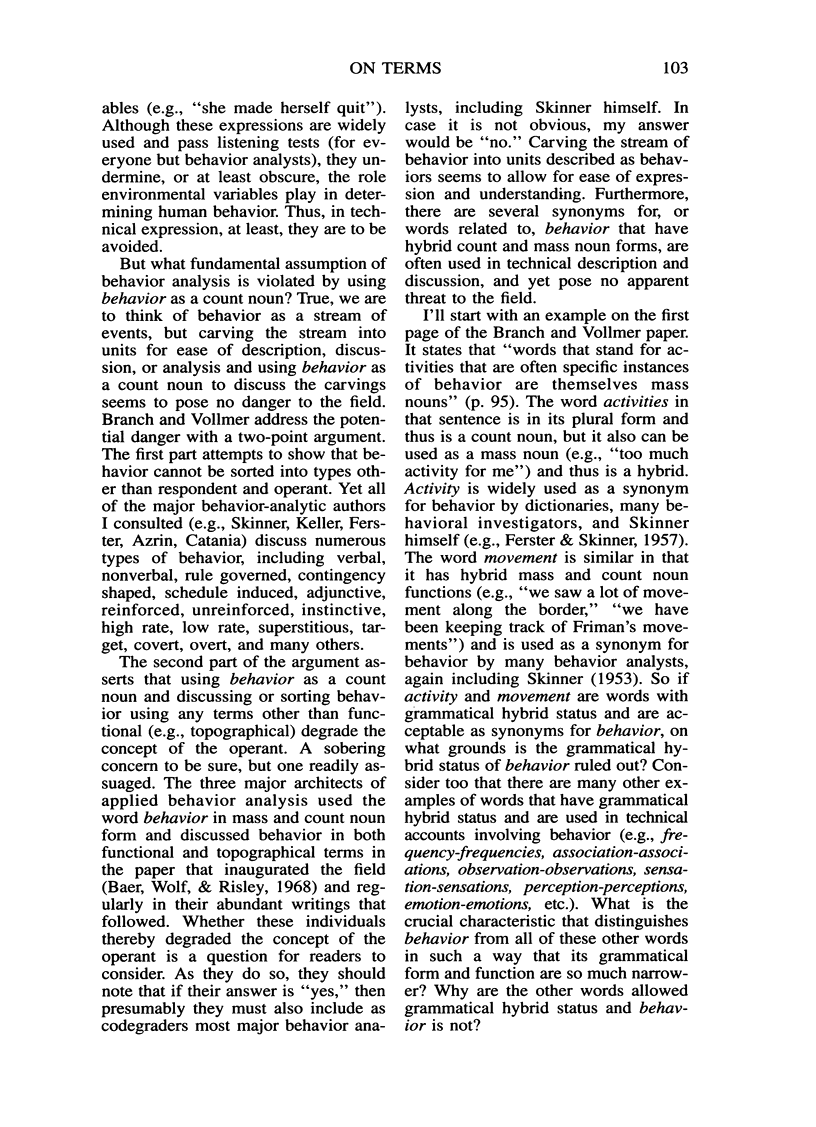
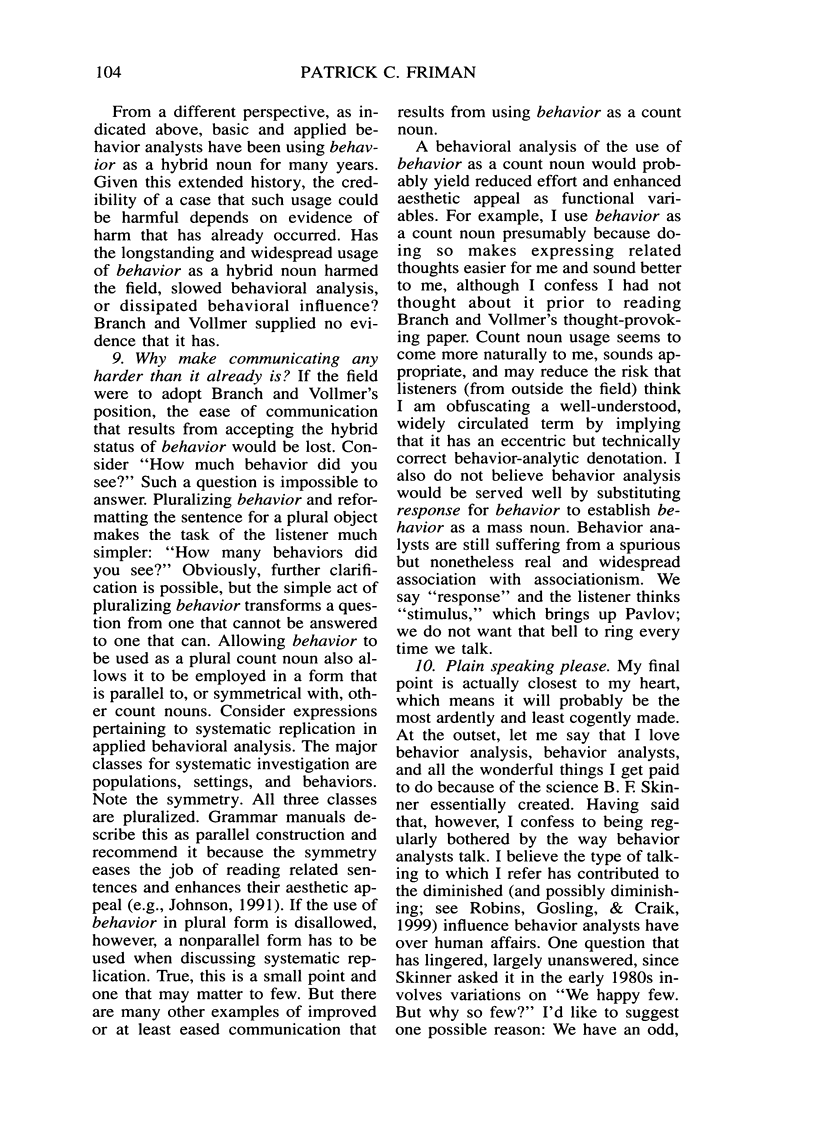
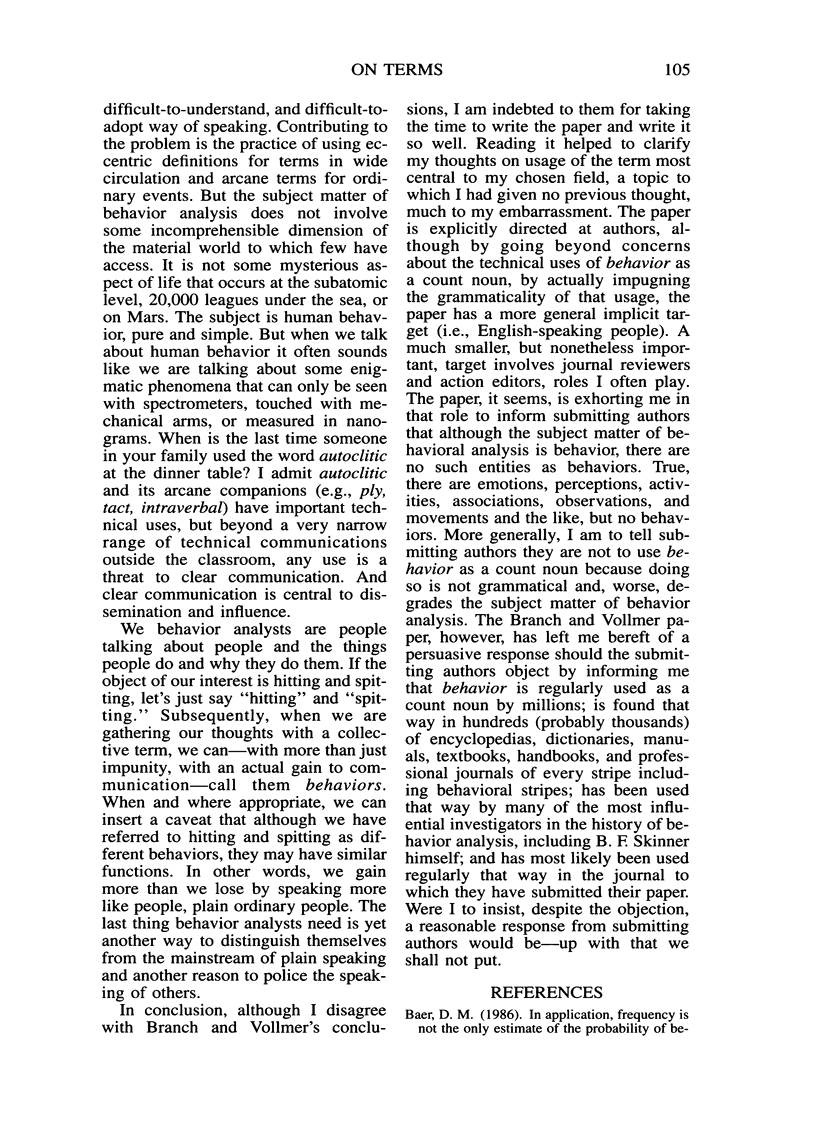
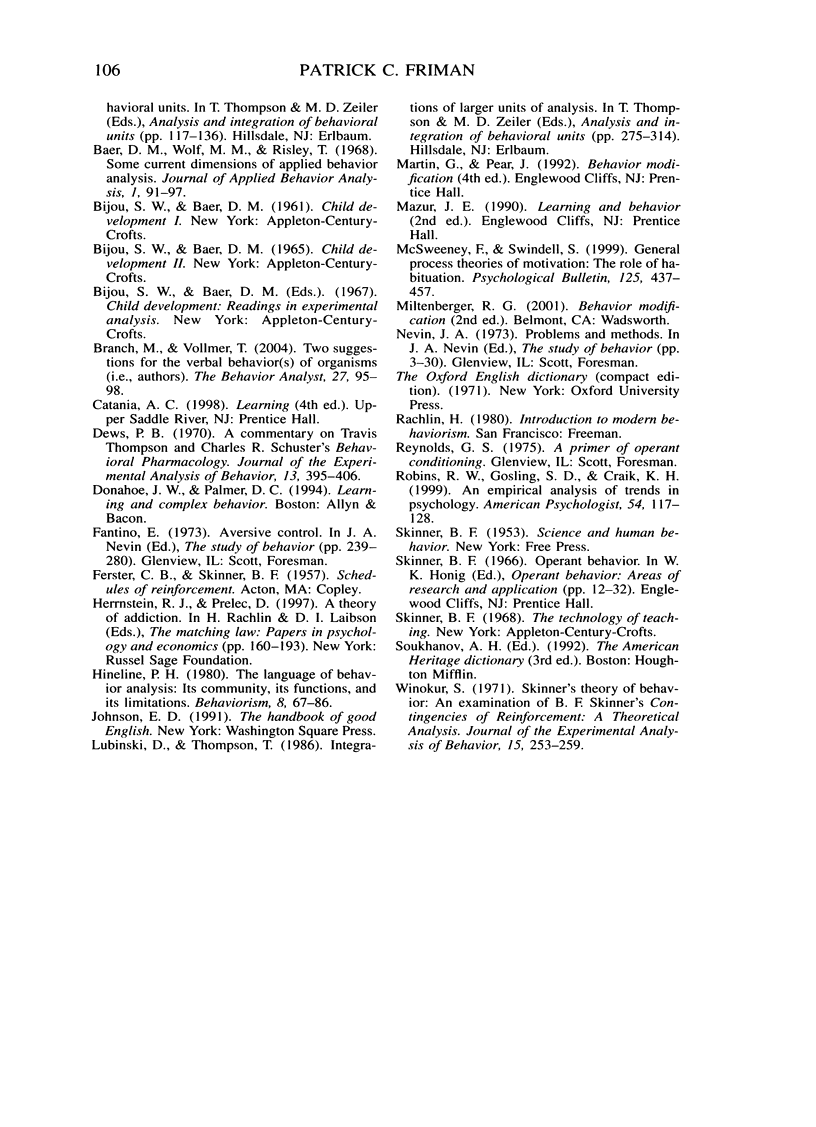
Selected References
These references are in PubMed. This may not be the complete list of references from this article.
- Baer D. M., Wolf M. M., Risley T. R. Some current dimensions of applied behavior analysis. J Appl Behav Anal. 1968 Spring;1(1):91–97. doi: 10.1901/jaba.1968.1-91. [DOI] [PMC free article] [PubMed] [Google Scholar]
- Branch Marc N., Vollmer Timothy R. Two suggestions for the verbal behavior(s) of organisms (i.e., authors). Behav Anal. 2004 Spring;27(1):95–98. doi: 10.1007/BF03392094. [DOI] [PMC free article] [PubMed] [Google Scholar]
- doi: 10.1901/jeab.1970.13-395. [DOI] [PMC free article] [Google Scholar]
- doi: 10.1901/jeab.1971.15-253. [DOI] [PMC free article] [Google Scholar]
- Robins R. W., Gosling S. D., Craik K. H. An empirical analysis of trends in psychology. Am Psychol. 1999 Feb;54(2):117–128. doi: 10.1037//0003-066x.54.2.117. [DOI] [PubMed] [Google Scholar]


